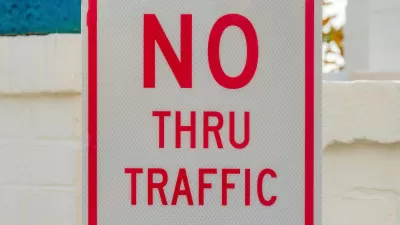Security is a major concern during large public events like the Olympics. The Chinese government is making preparations for a safe event, but could they go too far?
"Several events in China have raised concerns about public safety during the Games. Chinese officials, anxious to ensure the Olympics would be safe in the city of 17 million, have thrown down a smothering blanket of security."
"On Aug. 4, 2008, a vehicle rammed into a Chinese police station in western China, and attackers threw grenades, killing 32 people – the deadliest attack on security forces in recent times. Chinese counterterrorism experts claim that the country tracks a number of terrorist groups, from Muslim separatists, Al Qaeda, and Falun Gong to ethnic Chinese."
"'From a safety and security perspective, the Beijing Olympics are the third major Olympic event to occur outside the United States since 9/11. At the previous two events in Athens and Turin, a security and crisis response operations center was centrally located at the Games, clear event planning and crisis response roles and responsibilities for participating agencies were spelled out beforehand, and planning for Olympic-related security expenditures was accomplished early,' says security consultant Richard P. Grassie, CPP, President, Techmark Security Integration Inc., Rockland, MA."
"It's a fine line between balancing public safety and security to protect citizens from terrorism, and respecting civil liberties in a free society."
"China's installation of thousands of surveillance cameras on lampposts and in Beijing Internet cafés and bars may have another intent: to track dissidents who oppose the current one-party rule. The most extensive and sophisticated Western video monitoring will remain in place after the Olympics are over. Other video-monitoring systems are being installed in China's 600 largest cities."
Thanks to ArchNewsNow
FULL STORY: Security of Olympic Proportions: Conventional Wisdom on Safety at Public Venues

Study: Maui’s Plan to Convert Vacation Rentals to Long-Term Housing Could Cause Nearly $1 Billion Economic Loss
The plan would reduce visitor accommodation by 25,% resulting in 1,900 jobs lost.

North Texas Transit Leaders Tout Benefits of TOD for Growing Region
At a summit focused on transit-oriented development, policymakers discussed how North Texas’ expanded light rail system can serve as a tool for economic growth.

Why Should We Subsidize Public Transportation?
Many public transit agencies face financial stress due to rising costs, declining fare revenue, and declining subsidies. Transit advocates must provide a strong business case for increasing public transit funding.

How to Make US Trains Faster
Changes to boarding platforms and a switch to electric trains could improve U.S. passenger rail service without the added cost of high-speed rail.

Columbia’s Revitalized ‘Loop’ Is a Hub for Local Entrepreneurs
A focus on small businesses is helping a commercial corridor in Columbia, Missouri thrive.

Invasive Insect Threatens Minnesota’s Ash Forests
The Emerald Ash Borer is a rapidly spreading invasive pest threatening Minnesota’s ash trees, and homeowners are encouraged to plant diverse replacement species, avoid moving ash firewood, and monitor for signs of infestation.
Urban Design for Planners 1: Software Tools
This six-course series explores essential urban design concepts using open source software and equips planners with the tools they need to participate fully in the urban design process.
Planning for Universal Design
Learn the tools for implementing Universal Design in planning regulations.
City of Santa Clarita
Ascent Environmental
Institute for Housing and Urban Development Studies (IHS)
City of Grandview
Harvard GSD Executive Education
Toledo-Lucas County Plan Commissions
Salt Lake City
NYU Wagner Graduate School of Public Service




























